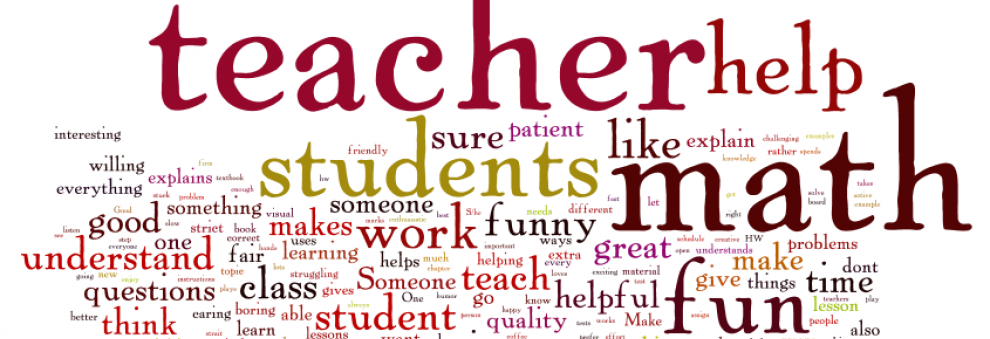We promotes wide cross-disciplinary discourse, and collaborations that bring faculty and teacher candidates together for joint exploration of shared concerns, goals and diverse disciplinary and pedagogical perspectives, in order to create opportunities for ongoing learning of both faculty and their teacher candidates, and for the emergence and implementation of better teacher education models. We understands the following dimensions of our work to be of utmost importance:
Professional Excellence
We emphasize our commitments to helping teacher candidates to develop the knowledge, skills and dispositions essential for a successful career as an educator. These skills include, but are not limited to, mastery of content knowledge and pedagogical theory, effective design and delivery of instruction, formal and informal assessment, approaches for motivating learners, leadership skills, classroom management strategies, and the ability to create learning environment to engage all students in productive learning. Additionally, we recognize the enormous potential of modern computer technologies as a tool for teaching, research, and productive communications with students and colleagues, and we are committed to nurturing our teacher candidates’ growth in mastering this essential tool in their teaching, service, and professional development.
Communities
We are clear about the value of our teacher candidates developing collaborative relationships with peers, and teacher mentors, and in being parts of formal and informal learning communities. Collaborative knowledge building is an approach that capitalizes on the diversity and richness of our exceptionally diverse college and communities located in Brooklyn, and fosters awareness of multiple perspectives, sensitivity to context, self-reflection, and dispositions for participating in group communication and for facilitating rich and complex discussions. Such an approach supports our teacher candidates in recognizing that students construct knowledge in multiple individual ways, influenced by factors such as ability, ethnicity, the social environment of home and school, primary language, and gender. It also helps candidates to recognize their individual students’ differences, the multiple possibilities of adapting their instruction to individual student needs and how do so in a variety of diverse communities and classroom settings.
Diversity
We share the vision that diversity extends beyond race, culture and gender. Therefore, we share the belief that sensitivity to, and knowledge about one’s own and others’ racial, ethnic, religious, class, sexual, gender, and cultural and linguistic differences is essential to the work of transforming urban schools. Recognition, understanding, and valuing diversity of learning styles, intelligences, ideas and talents, as well as social, economic, and cultural experiences are preconditions for teacher candidates that can enable them to create a learning environment in which all students, regardless of their race, color, religion, gender or sexual orientation, linguistic ability, ethnic or geographical origin, feel secure and appreciated. We share the desire to develop teacher candidates that enact “responsive pedagogy,” and that respond sensitively to the diversity of learners by offering varied learning opportunities that promote problem solving and the development of skills of each learner.
The pathways to pursue our mission and accomplish our goals are: Inquiry, Collaboration, and Reflection.
Inquiry
Inquiry refers both to the process of seeking knowledge and new understanding as well as to a method of teaching. Inquiry has several aspects, including inquiry as it is related to the body of content or body of research related to a specific field; and as a vehicle for a community of learners to examine pedagogical, institutional, or assessment practices (collaborative philosophical inquiry) or necessary teacher’s skills and dispositions, thus providing a process for implementation of systemic change for the greater good. A third aspect is learning to lead inquiry in a community of inquiry–to become a co-inquirer with students and an effective facilitator of productive discussions with students. We recognize that researching, questioning, reasoning, analyzing and problem solving are all aspects of an inquiry stance toward teaching and learning that we want to demonstrate in our teacher preparation courses, and one that we want to nurture in our teacher candidates.
Collaboration
Collaboration is the context in which all our inquiries take place. It is also a major venue for bringing teacher candidates, faculty, and school partners all together or in small groups to discuss issues of importance to teacher education and to learn from each other. Our intent is to help our teacher candidates learn to build collaborative partnerships with colleagues, parents, and students, and to help them learn and grow as individuals and as part of their own communities.
Reflection
Reflective practice is integrated into all aspects of our teacher education program, whether in the form of collaborative discussion, observation and thoughtful reflection on one’s or someone else’s’ performance, or in the form of reflective writing. Reflection is a major vehicle for gaining awareness of the complexities of one’s own teaching performance, for understanding one’s students in relation to content and curriculum, or for analyzing teachers’ decision-making. Our ambition is to harness reflection for systematic examination and improvement, whether through journaling and discussion, or in the form of individual or mentor-guided reflection through the use of videotapes and other performance artifacts.



